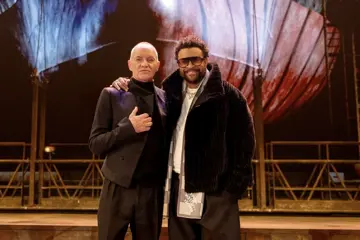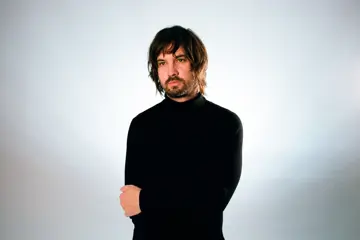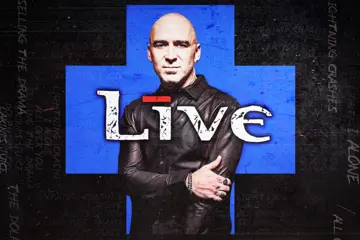 Buchanan
Buchanan"I think at the last count we actually recorded it in seven different studios,” so says Buchanan's lead singer Josh Simons of the epic recording process involved in putting together the band's meticulously crafted debut album Human Spring. A project 18 months in the making, the album has delivered on the potential Simons and his cohorts had hinted at on two previous EP's and is set to cement their reputation for stirring cinematic pop. As Simons explains though, Human Spring isn't a record borne of taking the easy way out.
“We actually started promoting the first single for the record over 12 months ago so it's been a very long journey to the actual release of the album,” he says with more than a hint of relief. “We actually started writing it before we knew we even wanted it to be an album. We spent most of 2011 touring and supporting our EP so between the dates we were shooting up to a holiday house in Lorne and just putting down some tracks. That got us signed to a production deal (with label Gigantically Small) and that then allowed us to get a producer in the room and try some new songs.”
The producer Simons is referring to is UK-based engineer Catherine Marks, best known for her work with Foals, Interpol and Death Cab For Cutie. “She's an Australian who has been living in England for about ten years now,” he explains. “She's worked on some of our favourite albums of all time, and on things like Kanye West as well. I knew on this album that I wanted to work with a producer who could take things to the next level but sometimes that can cost a lot of money. The thing about Catherine is that she's recorded a lot of bands before but she's never really been in the producer's chair – so we tried it out, loved the process and we ended up doing the whole album with her. We had to fly her back and forth a bit though – she was working on Foals' new album at the same time so whenever she was available we'd work with her.”
One part of this process, and perhaps a necessary evil for any band signed to significant label, was the eventual influence the A&R department had on the finished record. Rock biographies are littered with tales of evil members of this particular club and their dastardly deeds (Coldplay were once dismissed as “post Radiohead drivel” by one former scout), but Simons reveals a pragmatic take on the fiasco: the best ideas should always win. “My philosophy is that I'll fight for what I think is best,” he enthuses. “But the minute I'm proven wrong or someone shows me something that's better, I will go with that. You're absolutely crazy if you don't go with the strongest idea in the room. A&R was an interesting process, only because their motivation isn't necessarily the sonics like the producers might be. A&R are more thinking about whether the song has enough choruses and things like that. I suppose because we write song structures that aren't necessarily conventional – like a lot of the songs on this album don't have choruses but are still quite poppy – it was tough. That was a challenge but it only served to strengthen the album. It was completely confronting because I've never had anyone challenge me before on that type of stuff. In hindsight I can't believe it's never happened before because, you know, who am I to know what's going to work on radio? At the time, you hop in your car after a meeting and you chain smoke all the way home, pick up a bottle of wine and you get angry, but I'm so grateful for it in the end.”
Human Spring is streaming on theMusic now!
Don't miss a beat with our FREE daily newsletter















